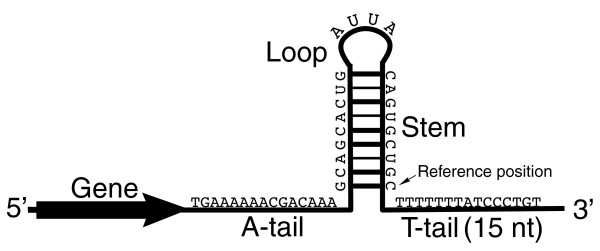Help:Terminators

Terminators are genetic parts that usually occur at the end of a gene or operon and cause transcription to stop. In prokaryotes, terminators usually fall into two categories (1) rho-independent terminators and (2) rho-dependent terminators.
Rho-independent terminators are generally composed of palindromic sequence that forms a stem loop rich in G-C base pairs followed by several T bases. The conventional model of transcriptional termination is that the stem loop causes RNA polymerase to pause and transcription of the poly-A tail causes the RNA:DNA duplex to unwind and dissociate from RNA polymerase.
All the E. coli terminators in the Registry are rho-independent terminators. Rho-dependent terminators are not included, because rho-dependent terminators are not specified by sequence.
- How do terminators work?
- Glossary of terms relating to terminators
- How to design a terminator
- How to construct an terminator
- How termination efficiencies are measured
- Further reading about terminator sequence and function
- Browse the terminator parts available from the registry
